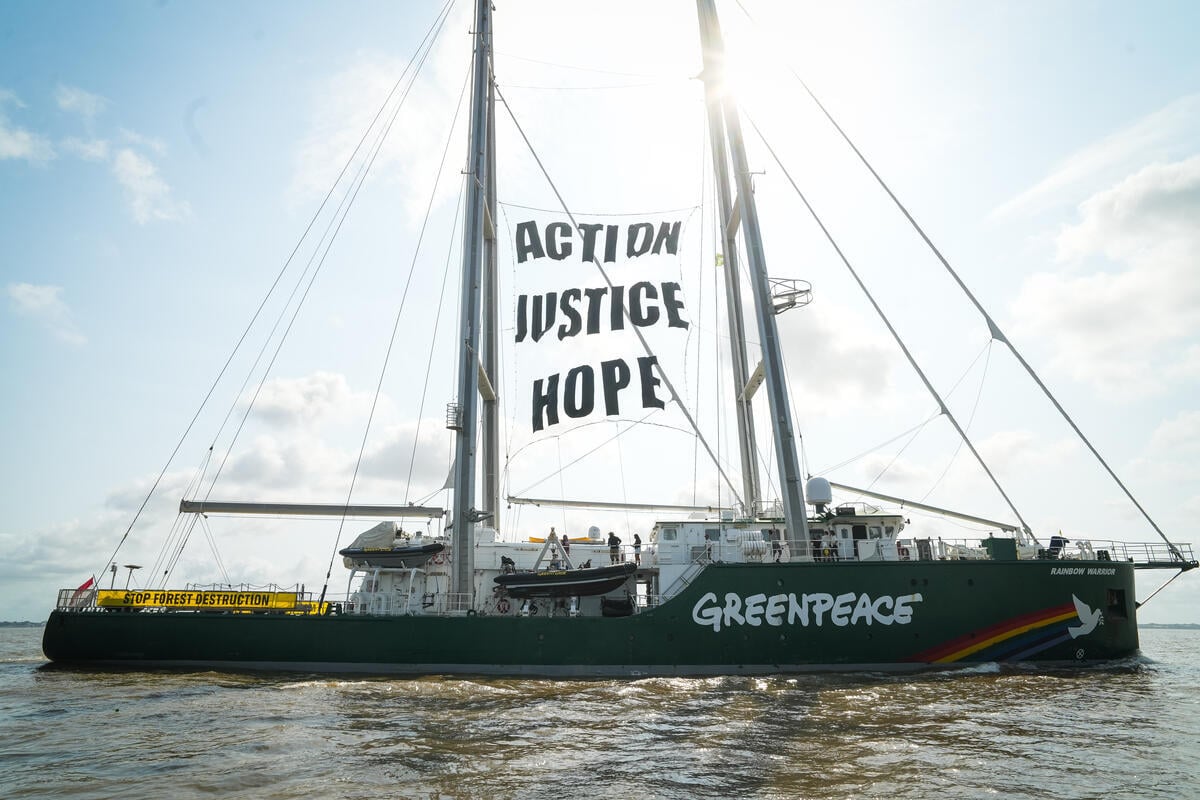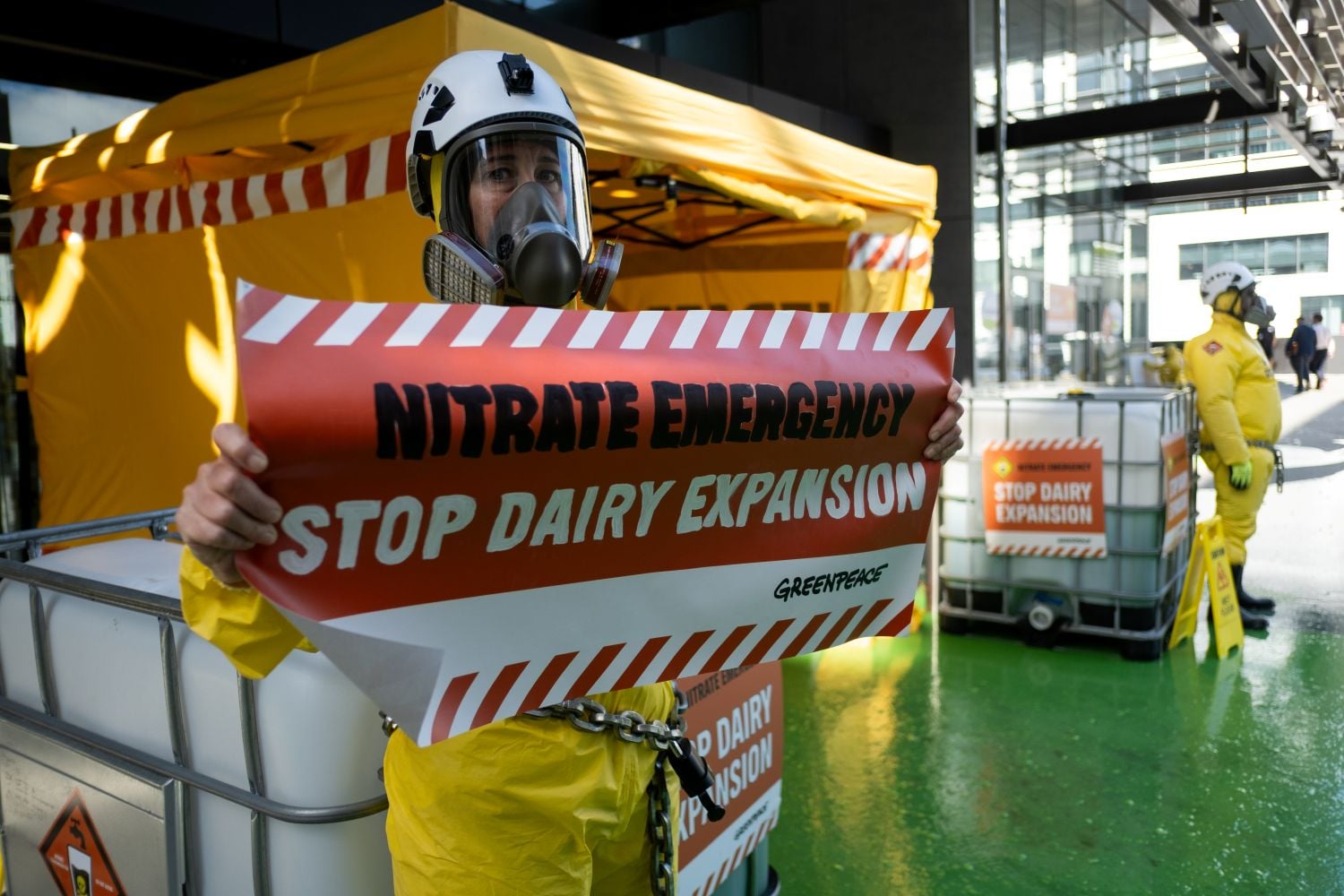It’s been a random, unpredictable year and truth to say, it’s hard to know what 2022 will bring. In the face of daily headlines it can be easy to feel overwhelmed.
So here, as a reminder for why we come together, what we hope for, and to warm our hearts for the courage to tackle the big and small issues, are some of the good news stories for the environment from the year.
A win to stop mining of the seabed
Iwi, hapū, local communities, environmental campaigners, Greenpeace and supporters, and the ocean won a victory when the Supreme Court dismissed mining company Trans Tasman Resources’ (TTR) appeal to mine the Taranaki seabed. This decision affirmed a previous High Court ruling, which blocked TTR’s resource consent to begin a giant seabed mining operation in the South Taranaki Bight.
Read: Supreme Court slams door on seabed mining, time for a ban
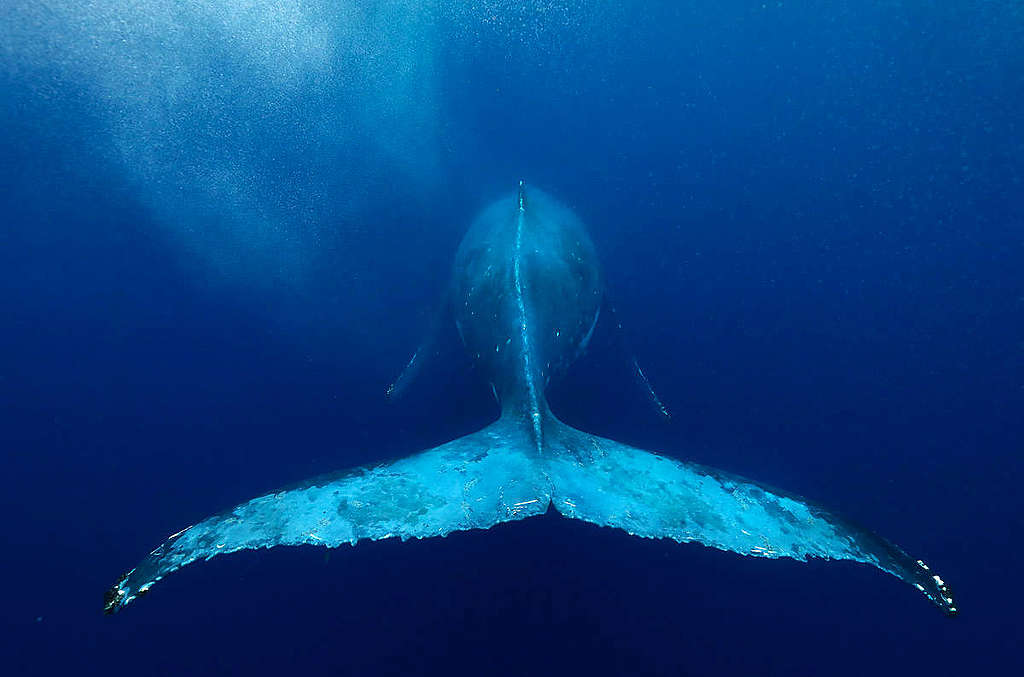
Seabed mining is a new threat to the oceans. Now is our chance to prevent the destruction before it’s too late.
Add my nameThe right to a healthy environment
The United Nations Human Rights Council this year gave formal recognition to the essential right to a healthy and sustainable environment. It’s been heralded as a historic victory for environmental protection and an important step forward for the people in the world most affected by the impact of climate change. It could also be a policy lever to address the elephant in New Zealand’s room: the growth in greenhouse gas emissions and water pollution by intensive dairy.
No more leaded gasoline
In sad-good news, the last leaded gasoline refinery in the world, located in Algeria, banned leaded gasoline this year and has now exhausted its stocks. This marks the official end of one century’s use of the fuel, which is linked to health effects such as cognitive issues and permanent nerve damage.
Read more: Finally, the end of leaded gas
NZ Post is going electric
New Zealand postal service has committed to being carbon neutral by 2030 and towards that is turning its vehicle fleet electric. NZ Post aims to have all its own fleet and a quarter of its contractor fleet electric by 2025, and the whole of the contractor fleet by 2030.
Read: NZ Post uses green finance to accelerate move to electric vehicles
100,000 come together to #BantheBottle
In a big win in June the Government announced a wide ranging phase out of single-use plastics by 2025. The ban will include cotton buds, packaging, cutlery, and fruit labels while specifically acknowledging disabled people’s right to have fair access to plastic straws without discrimination.
And – as good as it is, the phase-out still doesn’t go far enough. Throwaway plastic bottles are among the worst culprits in the plastics pollution crisis but are not included in the phase-out.
More than 100,000 people in New Zealand have so far joined the call for the government to ban single-use plastic bottles and mandate refill and reuse solutions.

Call on the NZ Government to ban unnecessary single-use plastic bottles* in NZ, and to incentivise reusable and refillable alternatives.
Take ActionIn this short clip, marking the launch of Birdie (a giant toroa made of discarded plastic bottles), Juressa Lee (Te Rarawa, Ngāpuhi, Rarotonga), our plastics campaigner at Greenpeace Aotearoa, introduces the kaupapa.
Trees and people for the climate
This year everyone in Wales has been offered the chance to plant a tree!
Read: Free tree for every Welsh household in climate initiative
Rangatahi are rising
COP26 may have lacked ambition, but the streets outside were alive with activists marching. Local climate activist India Logan Riley (Kahungunu, Rongomaiwahine, Rangitāne) made headlines around the world when they told the global leaders at the opening session of the Glasgow climate summit: “learn our histories, listen to our stories, honour our knowledge and get in line, or get out of the way”.
Read more: Meet 12 climate activists changing the world
The launch of Oceanic Voices saw several young Pasifika community leaders come together to support a ban on seabed mining in Aotearoa and the Pacific. As Tina Maro (Pacific Media Network) says, “seabed mining in our waters and around the Pacific will have devastating impacts for generations to come if it continues to progress. We are tangata moana, we are people from the sea, so we have a responsibility as kaitiaki to ensure its sustainability.”
Check out: Young Pasifika community leaders join call to ban seabed mining to protect moana
Wolves roam Colorado again
After a public vote in 2020 wolves were reintroduced to Colorado wilderness, since being wiped out in 1945. There’s strong hope this will benefit a revival for the whole ecosystem of plants and animals, as has happened in other places such as Yellowstone Park.
Read: First wolf litter in 80 years born in Colorado
Showing up makes all the difference
Zane is an activist-arborist, and recently kaimahi (staff) at Greenpeace, who walked on site at the airport in Ardmore (south Auckland) when he heard of the removal of a lowland ngahere (forest) of kahikatea. The rākau (trees) are still standing today, and are now fenced off.
Read: Never underestimate the power of showing up
The finance sector forced to act for the environment
Large financial institutions in Aotearoa must from this year disclose to their investors the impact of their activities on the climate, and also the risk to their business. While this may not seem much, this transparency has the potential to affect big money decisions, and make sure the effects of the climate crisis are always considered in business, investment, lending and insurance decisions.
Read more: New Zealand to launch world-first climate change rules
Oil industry surrenders the last remaining oil exploration permit outside of Taranaki
In March, New Zealand Oil and Gas gave up its ‘Toroa Permit’, which gave it permission to explore a 5000 square kilometre area south of Dunedin for oil and gas. That’s a huge win for people power, for our oceans and sea creatures, for the climate and for the future.
Netherlands takes action against nitrate pollution
The Dutch government is investing €25bn to reduce the numbers of farmed animals and the nitrogen pollution they cause, by a third. “We don’t have to feed the world, but we could show how to do it in a more sustainable way,” says organic dairy farmer Jaring Brunia, from Friesland in the north of the country.” It’s time for the New Zealand Government to do the same.
Read more: Netherlands announces €25bn plan to radically reduce livestock numbers
The regenerative organic farming revolution is here
It’s hard to pinpoint one event but there is a growing awareness of all the ways of producing food that are kind to people and the planet. That is, food sovereignty, regenerative, organic, small scale, urban farm, community oriented, marae based systems … there are so many examples!
In this short engaging film Jessica Hutchings talks about the Hua Parakore certification, which is the world’s first indigenous verification system for organic food.
Watch: Building indigenous food sovereignty with the Hua Parakore organic framework
Yotam and Niva Kay, who won the Organic Farmer of the Year award, are successful market gardeners tapping into a huge demand for local organic fresh produce. Their book The Abundant Garden, launched this year, spent two weeks at number one on the bestsellers list.
Read more: Market gardeners hope to see organic regenerative farming revolution
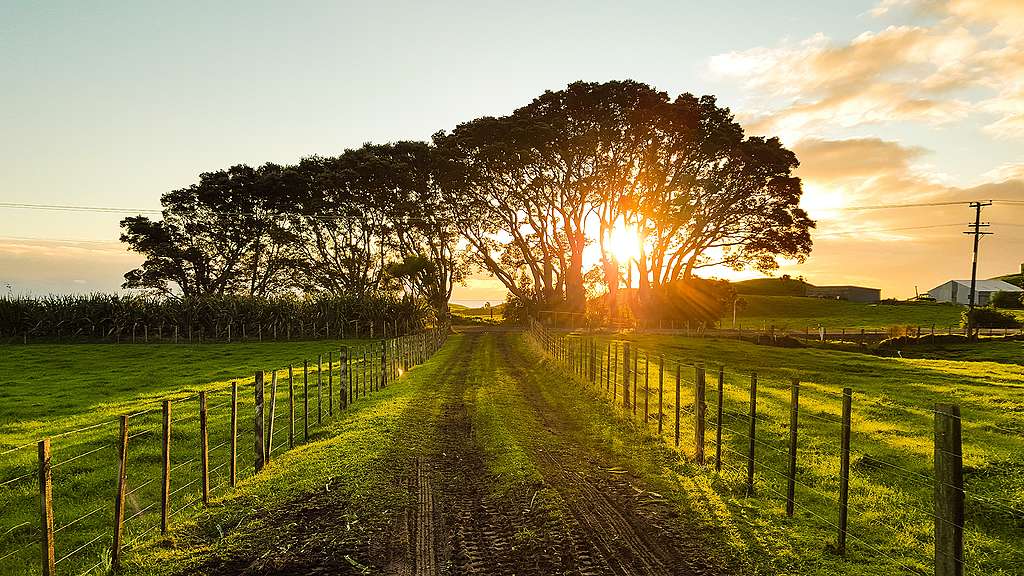
Call on Christopher Luxon to set up a billion dollar fund to transition New Zealand away from industrial to regenerative agriculture.
Take ActionIn crucial news – a chance for coffee
Unstable climate events, alongside unsustainable mass production methods, are threatening the world’s coffee supply. But we might just be ok – a coffee tree species Coffea stenophylla has been rediscovered in the wild.
Read more: Coffee as we know it is in danger. Can we breed a better cup?
50 years of hope in action
The beginning of a global movement called Greenpeace turned 50 years old this year! 50 years of people coming together to act towards a vision of a green and peaceful future. It’s a story of people-power, of ordinary people doing extraordinary things. A story which demonstrates that together we can shift radical change, and what at first might seem impossible, possible.
Check out: A timeline of victories, wins and milestones here in Aotearoa; and an interactive timeline of Greenpeace victories internationally, since 1972!
Was there another news story for the environment from 2021 that especially gave you hope? Let the Greenpeace Aotearoa team know by emailing good-[email protected] (put ‘Good news 2021’ in the subject line) and we’ll share it as a positive start to get into the New Year.
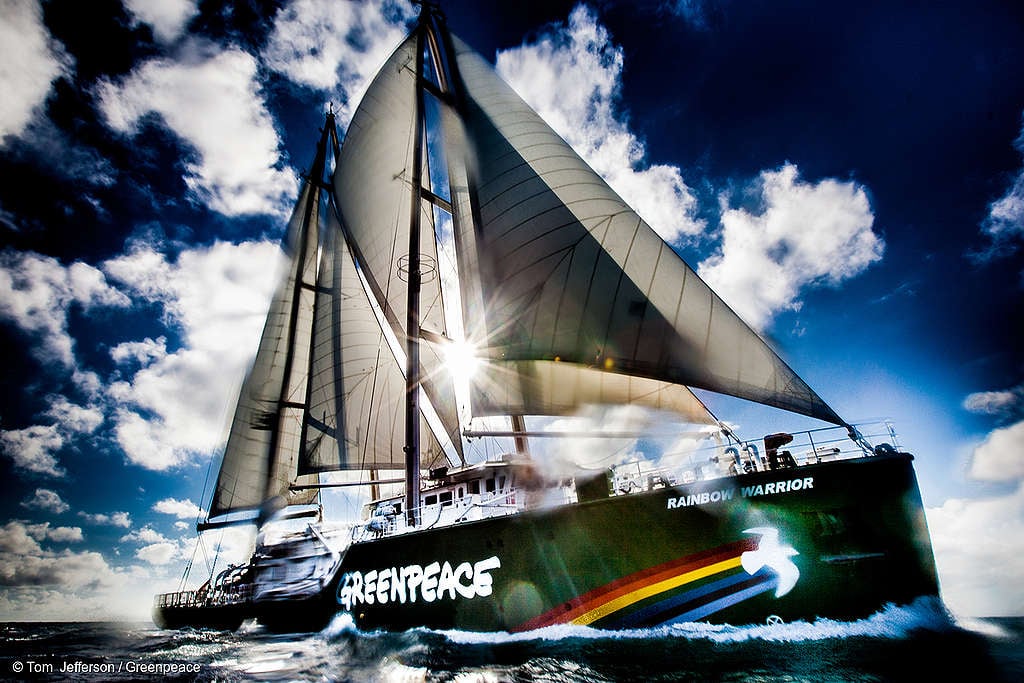
Donate to Greenpeace today. We take no money from corporations or governments. Our independence and ability to speak and act freely is our greatest strength. To maintain that freedome, we rely on the generosity of people like you to keep us in action.
Take Action
